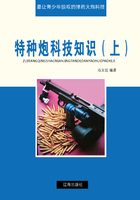He claims, however, that in great crises, it is not over-production, but rather "the lagging behind of popular consumption... artificially produced under-consumption... interference with the natural growth of the needs of the people " (!) "which ultimately make the gulf between supply and demand so critically wide" {D. C. 227, 228}.
And he has even had the good fortune to find a disciple for this crisis theory of his.
But unfortunately the under-consumption of the masses, the restriction of the consumption of the masses to what is necessary for their maintenance and reproduction, is not a new phenomenon. It has existed as long as there have been exploiting and exploited classes. Even in those periods of history when the situation of the masses was particularly favourable, as for example in England in the fifteenth century, they under-consumed. They were very far from having their own annual total product at their disposal to be consumed by them. Therefore, while under-consumption has been a constant feature in history for thousands of years, the general shrinkage of the market which breaks out in crises as the result of a surplus of production is a phenomenon only of the last fifty years; and so Herr Dühring's whole superficial vulgar economics is necessary in order to explain the new collision not by the new phenomenon of over-production but by the thousand-year-old phenomenon of under-consumption. It is like a mathematician attempting to explain the variation in the ratio between two quantities, one constant and one variable, not by the variation of the variable but by the fact that the constant quantity remains unchanged. The under-consumption of the masses is a necessary condition of all forms of society based on exploitation, consequently also of the capitalist form; but it is the capitalist form of production which first gives rise to crises. The under-consumption of the masses is therefore also a prerequisite condition of crises, and plays in them a role which has long been recognised. But it tells us just as little why crises exist today as why they did not exist before.
Herr Dühring's notions of the world market are altogether curious. We have seen how, like a typical German man of letters, he seeks to explain real industrial specific crises by means of imaginary crises on the Leipzig book market -- the storm on the ocean by the storm in a teacup. He also imagines that present-day capitalist production must "depend for its market mainly on the circles of the possessing classes themselves" {221}, which does not prevent him, only sixteen pages later, from presenting, in the generally accepted way, the iron and cotton industries as the modern industries of decisive importance {236} -- that is, precisely the two branches of production whose output is consumed only to an infinitesimally small degree within the circle of the possessing classes and is dependent more than any other on mass use. Wherever we turn in Herr Dühring's works there is nothing but empty and contradictory chatter. But let us take an example from the cotton industry. In the relatively small town of Oldham alone -- it is one of a dozen towns round Manchester with fifty to a hundred thousand inhabitants engaged in the cotton industry -- in this town alone, in the four years 1872 to 1875, the number of spindles spinning only Number 32 yarn increased from two and a half to five million; so that in one medium-sized English town there are as many spindles spinning one single count as the cotton industry of all Germany, including Alsace, possesses. And the expansion in the other branches and areas of the cotton industry in England and Scotland has taken place in approximately the same proportion. In view of these facts, it requires a strong dose of deep-rooted {555-56} effrontery to explain the present complete stagnation in the yarn and cloth markets by the under-consumption of the English masses and not by the over-production carried on by the English cotton-mill owners. *12But enough. One does not argue with people who are so ignorant of economics as to consider the Leipzig book market in the modern industrial sense. Let us therefore merely note that Herr Dühring has only one more piece of information for us on the subject of crises, that in crises we have nothing "but the ordinary interplay of overstrain and relaxation" {228}; that over-speculation "is not only due to the planless multiplication of private enterprises", but that "the rashness of individual entrepreneurs and the lack of private circumspection must also be reckoned among the causes which give rise to oversupply" {229}.
And what, again, is the "cause which gives rise" to the rashness and lack of private circumspection? Just precisely this very planlessness of capitalist production, which manifests itself in the planless multiplication of private enterprises. And to mistake the translation of an economic fact into moral reprobation as the discovery of a new cause is also a piece of extreme "rashness".
With this we can leave the question of crises. In the preceding section we showed that they were necessarily engendered by the capitalist mode of production, and explained their significance as crises of this mode of production itself, as means of compelling the social revolution, and it is not necessary to say another word in reply to Herr Dühring's superficialities on this subject. Let us pass on to his positive creations, the "natural system of society" {D. Ph. 282}.
This system, built on a "universal principle of justice" {D. C.
320} and therefore free from all consideration of troublesome material facts, consists of a federation of economic communes among which there is "******* of movement and obligatory acceptance of new members on the basis of fixed laws and administrative regulations" {323}.
The economic commune itself is above all "a comprehensive schematism of great import in human history"{341}













